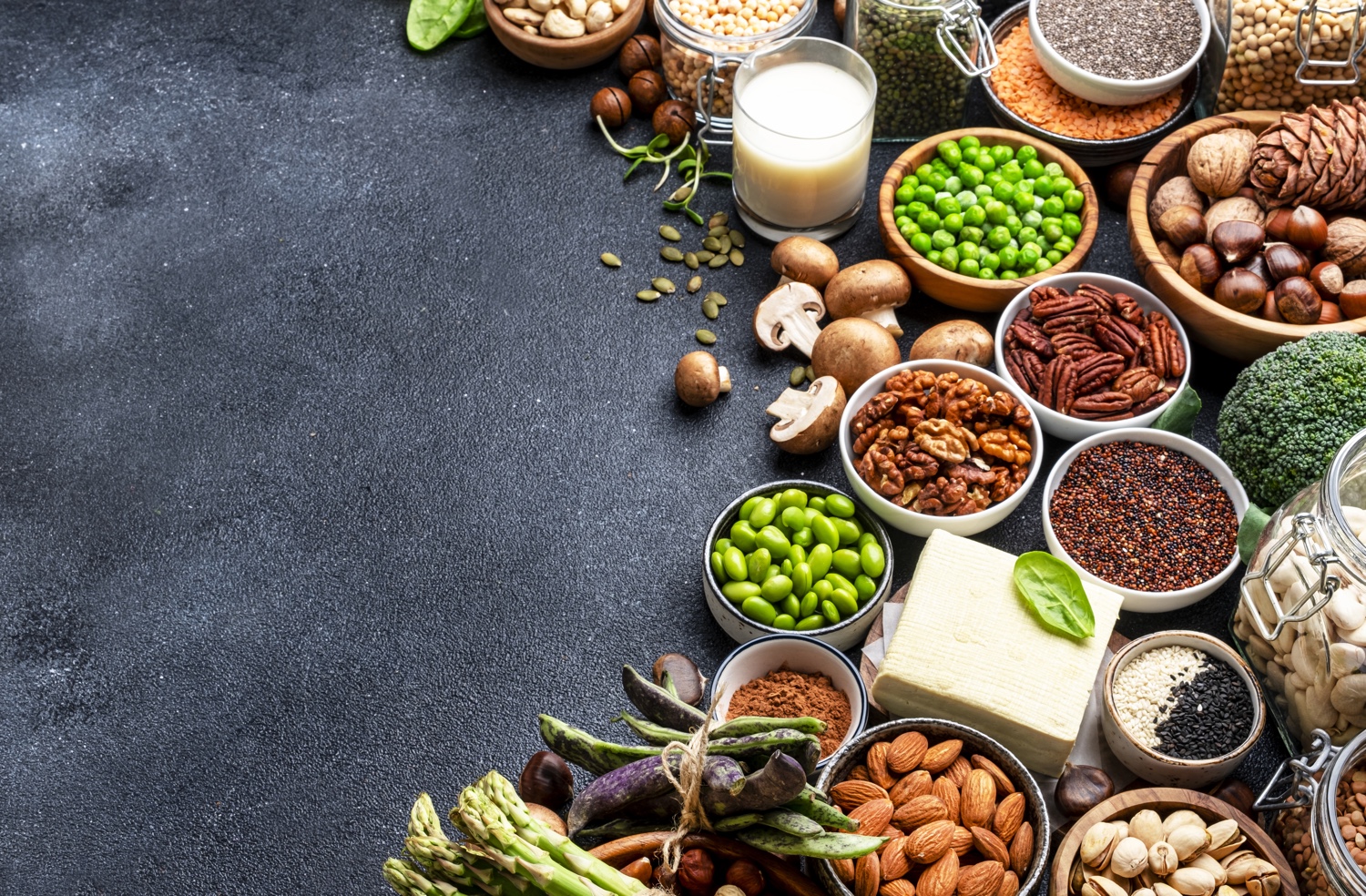

The interest in plant-based foods and alternatives to animal products has grown immensely in recent years. Around 10 years ago, there were hardly any meat and dairy alternatives available to consumers in the market. However, supermarket shelves today are packed with various meat and dairy alternatives, reflecting the growing demand. Additionally, a few years ago, a new trend emerged that may have pushed plant-based product production forward quickly.
Plant-based foods vs. veganism
It’s important to clarify the difference between plant-based foods and following a vegan diet. The recent vegan trend has most likely driven the demand for plant-based products. Because of veganism, companies and people have become more aware of plant-based eating, but also tensions have risen between vegan and non-vegan communities. If someone follows a vegan diet, they avoid all animal products, whereas plant-based foods are simply made from plants, without any animal products.
Plant-based food for healthy living
Plant-based foods have always been known to promote a healthy life. Recent studies show that consuming plant-based foods leads to a healthier lifestyle and body. Moreover, they indicate that plant-based diets can reverse arteriosclerosis, potentially cure cancer and prevent various diseases. When these groundbreaking studies first appeared, a new trend in plant-based eating was born.
Furthermore, plant-based foods are packed with antioxidants, vitamins, minerals and fiber. These nutrients nourish our bodies perfectly. Millions of years of evolution have made our bodies receptive to exactly this type of food; our bodies need fiber to thrive, but many people don’t get enough in their diets nor are they aware of that fact. The potential for plant-based foods to transform and heal our bodies might be truly possible.
The rise of the conscious consumer
As consumers have become more conscious about health-related topics, seeking to understand food better or simply feel better, social media has swiftly picked up on these discussions, generating abundant content related to these topics.
Indeed, the food industry has changed significantly with the rise of conscious consumers, driving the demand for animal replacement products. Furthermore, fake meat, dairy replacements, plant-based cheeses and other alternatives are growing in popularity among consumers. As a result, both small and large companies now offer a wide variety of plant-based products to meet this demand. Moreover, supermarket aisles look very different than they did 10 years ago, with entire sections dedicated to vegan and plant-based goods. The products themselves, once full of questionable ingredients, have improved as many people become more health aware.
Conscious consumers avoid meat products to improve their health and help the planet, seeing this change as a great opportunity. Moreover, the demand for plant-based milk alternatives has skyrocketed, reflecting a major shift in consumer preferences. Restaurants now offer more vegan options and fully plant-based restaurants are becoming increasingly popular. This shift in consumer preferences is evident in the changing landscape of the food industry.
Furthermore, this growing awareness can influence others, leading to an increased demand for vegan-friendly alternatives. From milk substitutes like almond or oat drinks to avoiding restaurants without vegan options, vegan preferences impact group dining choices.
Innovations in plant-based meat
New research and technologies are advancing plant-based meat alternatives. These products now replicate the taste and texture of real meat, appealing to both long-term vegans and meat enthusiasts. Such innovations not only reduce waste but also satisfy conscious consumers and contribute to planetary balance. Meat lovers now can support the planet without compromising on taste or texture, promoting sustainability.
Benefits of plant-based foods
Beyond the health benefits mentioned above, conscious consumers are also increasingly aware of the environmental impact of animal agriculture. Feeding livestock requires vast resources, and eliminating livestock could provide enough food for everyone, addressing global food scarcity issues. Moreover, livestock farming significantly contributes to deforestation, carbon dioxide emissions and ocean pollution, causing extensive environmental damage.
Eco-friendliness: Plant-based foods benefit the planet by reducing the need for space, waste and resources. Consequently, modern animal food alternatives are a win for planetary health.
Food security: Plant-based foods provide greater food security and efficiency. Directly feeding humans with plants is more resource-efficient than raising livestock. This approach can help ensure that everyone has access to sufficient food, which is a fundamental human right.
Holistic approach: Regenerative agriculture prioritizes soil health, biodiversity, water management and carbon sequestration. This holistic approach to farming is environmentally and socially beneficial.
The burgeoning awareness of plant-based alternatives and their benefits is pivotal for the food and hospitality industries. Embracing plant-based foods represents a significant stride toward a healthier human population and planet. To foster harmony on Earth, collective effort is essential and integrating more plant-based options is a crucial step forward.

Steff Hazel,
CEO and founder of nu.choices,
@nu.choices
facebook.com/steff.hazel.nuchoices/
linkedin.com/in/stefanie-haselmann-nuchoices-steff-hazel













